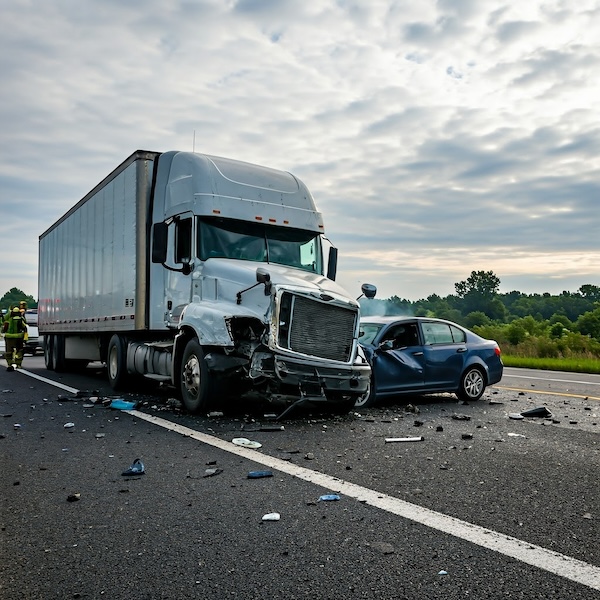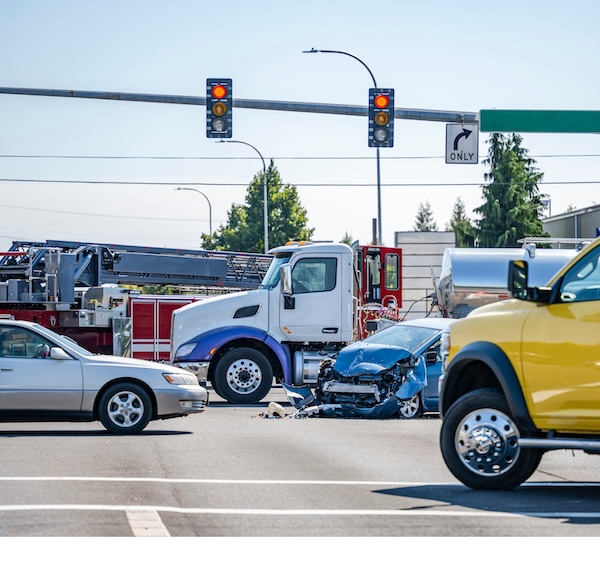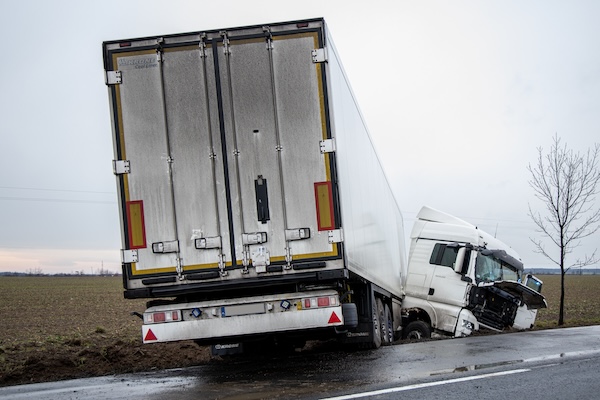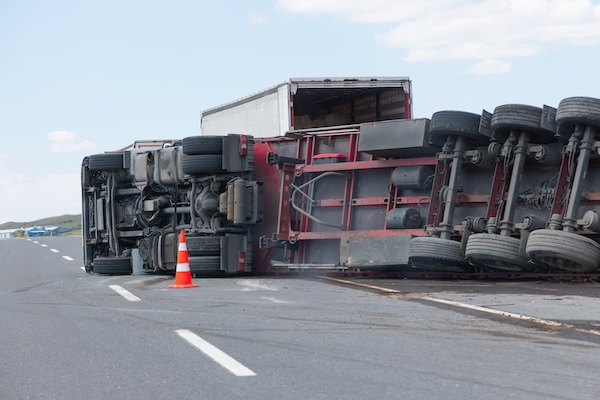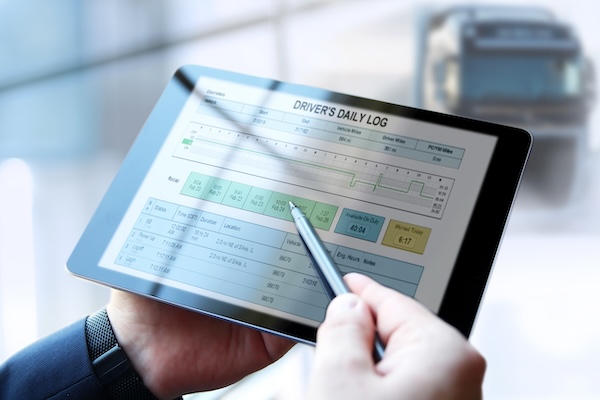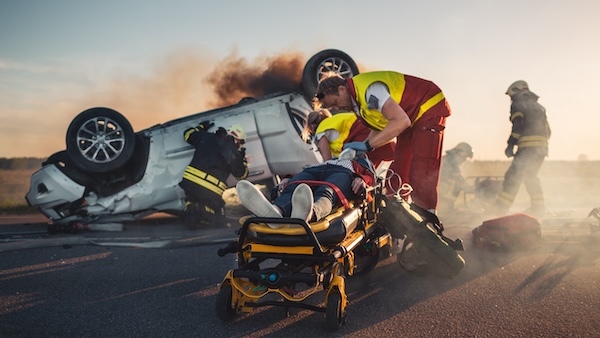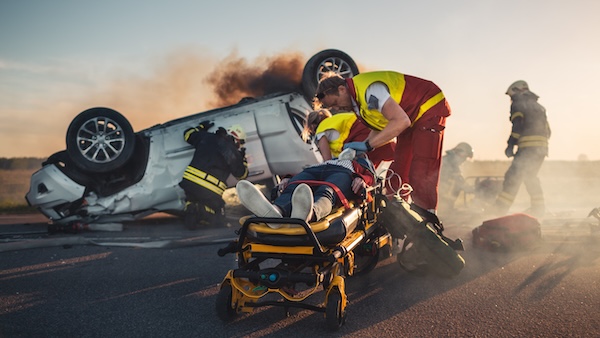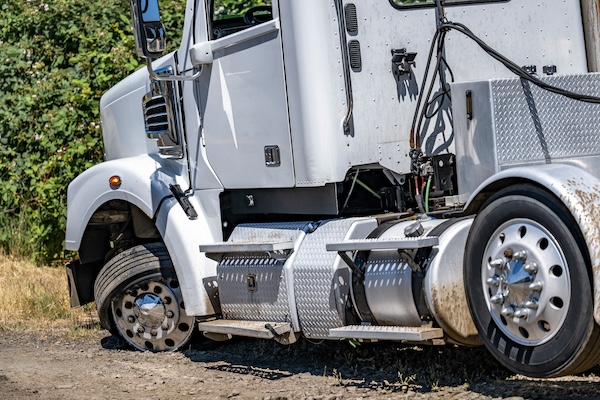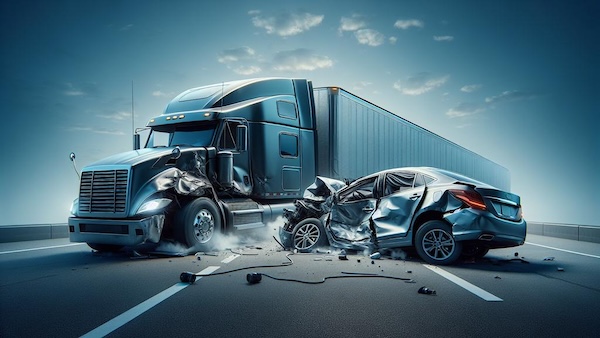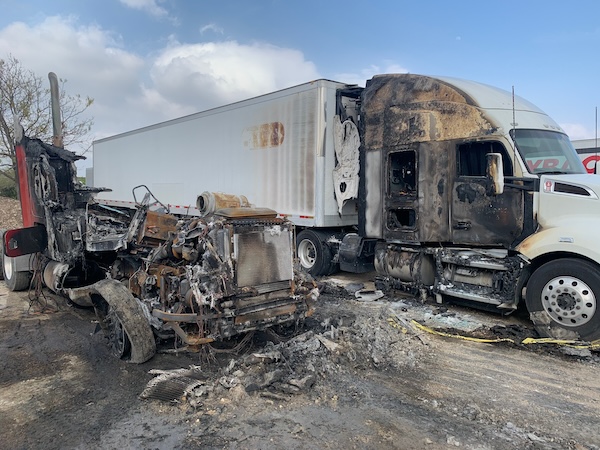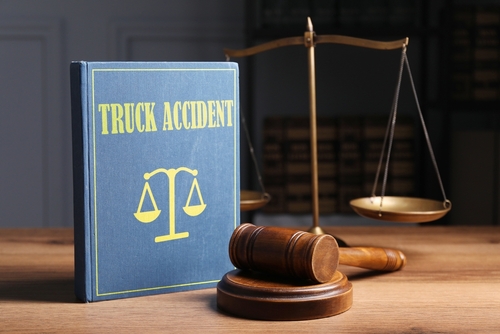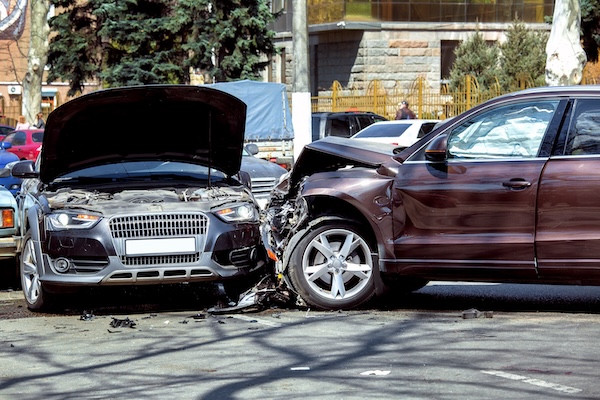Being involved in a delivery truck accident or any other commercial vehicle accident can instantly turn your life upside down. From medical expenses and lost wages to property damage and emotional trauma, the aftermath is often overwhelming. Fortunately, a commercial vehicle accident lawyer in Georgia can help you navigate the complex legal process, determine liability, and pursue the maximum compensation you deserve. Whether your case involves a delivery truck accident, commercial driver crash, or another form of trucking collision, understanding your rights is essential to achieving justice.
Understanding Commercial Vehicle Accidents
A delivery truck accident typically involves vehicles used for business purposes, such as cargo vans, box trucks, and semi-trucks operated by delivery companies. These vehicles are larger and heavier than passenger cars, meaning a delivery truck accident can result in more serious injuries and higher medical costs.
Common Causes of Commercial Vehicle Crashes
Numerous factors contribute to delivery truck accidents, many of which stem from negligence:
- Driver fatigue from long delivery shifts
- Reckless driving and speeding under pressure
- Inadequate driver training
- Poor vehicle maintenance
- Failed drug tests or substance use
- Distracted driving with mobile devices
- Mechanical failures ignored due to skipped inspections
Each delivery truck accident has its own circumstances, but negligence is often at the root.
Types of Commercial Vehicle Accidents
Delivery Truck Accidents Can Take Many Forms
A delivery truck accident can happen in numerous ways, and each type presents unique risks and legal complexities. Understanding these variations helps you and your legal team build a stronger case and pursue appropriate compensation.
Rear-End Collisions
A rear-end collision occurs when a delivery truck crashes into the back of another vehicle. Due to the size and weight of delivery trucks, these crashes often cause significant property damage, whiplash, and spinal injuries to occupants of the smaller vehicle. These accidents are often caused by driver fatigue, speeding, or distracted driving. Proving liability may involve analyzing brake maintenance records and driver response times.
Jackknife Accidents
In a jackknife accident, the truck’s trailer swings out at an angle to the cab, forming an “L” or “V” shape. This often happens when the truck is forced to brake suddenly on slippery roads or during poor handling by an inexperienced or inadequately trained delivery truck driver. These crashes can block multiple lanes and lead to chain-reaction collisions, increasing the number of accident victims and the complexity of personal injury claims.
Underride Collisions
Underride accidents occur when a smaller vehicle slides under the rear or side of a delivery truck. These are among the most deadly types of delivery truck accidents, often resulting in traumatic brain injuries, internal decapitation, or wrongful death cases. The absence or failure of underride guards, required by federal law, can be a key factor in determining driver negligence and trucking company liability.
Blind-Spot Incidents
Delivery trucks have large blind spots—also known as “no-zones”—on all four sides, especially on the right and directly behind the vehicle. If a delivery truck driver changes lanes without properly checking these areas, it can result in collisions with unsuspecting drivers. These accidents often lead to significant property damage and serious bodily harm, especially for vehicles caught beneath the truck during a lane change.
Rollover Accidents
A delivery truck can roll over due to improper cargo loading, excessive speed on curves, or sharp evasive maneuvers. Rollover accidents pose severe risks not just to the truck driver, but to nearby vehicles and pedestrians. Legal teams will often examine cargo weight, vehicle maintenance logs, and the driver’s route to identify negligence or inadequate training.
T-Bone or Side-Impact Crashes
These occur when a delivery truck strikes the side of another vehicle, often at intersections where traffic signals are ignored or misjudged. The sides of passenger vehicles offer less protection, making serious injuries likely. These crashes may require expert analysis of intersection footage, traffic laws, and eyewitness testimony to establish fault and recover compensation.
Head-On Collisions
Among the most catastrophic, head-on delivery truck accidents usually happen due to drowsy or impaired driving, distracted operation, or navigating the wrong way down a roadway. The sheer force of a head-on collision with a delivery truck frequently results in traumatic brain injuries, internal damage, or fatal outcomes. These cases often lead to large-scale personal injury claims or wrongful death lawsuits.
Each delivery truck accident scenario requires a thorough investigation to uncover critical evidence—from driver logs and black box data to road conditions and maintenance records. An experienced Georgia injury attorney will examine these factors meticulously to support your case, ensure proper insurance claims, and seek maximum compensation for your injuries and losses.
Preserving and Using Critical Evidence After a Delivery Truck Accident
In any delivery truck accident, evidence is the foundation of a successful personal injury case. The more thoroughly evidence is preserved and analyzed, the stronger your position will be when negotiating with the insurance company or presenting your case in court. Time is of the essence—key information can be lost, destroyed, or manipulated if not secured quickly.
Why Evidence Matters
To recover damages in a personal injury claim, your attorney must prove:
- That the delivery truck driver or trucking company was negligent
- That this negligence directly caused the accident
- That you suffered serious injuries, property damage, or other losses as a result
Without clear and compelling evidence, the insurance company may deny your claim or offer far less than what your case is truly worth.
Key Types of Evidence in Delivery Truck Accident Cases
Here’s what your legal team will work to collect and preserve:
Black Box Data (Electronic Logging Devices)
Modern commercial trucks, including delivery vehicles, are equipped with electronic logging devices (ELDs). These “black boxes” record valuable data such as:
- Speed at the time of the crash
- Sudden braking or acceleration
- Hours of service (used to detect driver fatigue)
- Steering angles and GPS location
This objective data can reveal reckless driving or violations of federal law, and may be pivotal in establishing the negligent party.
Driver Logs and Records
Federal regulations require truck drivers to keep daily logs of their activity. These logs may reveal violations of rest periods, driving time limits, or even fraudulent entries. Additionally, drug test results, licensing information, and any prior violations or license suspensions are relevant in showing a pattern of unsafe behavior.
Vehicle Maintenance Records
Improper or poor vehicle maintenance is a leading cause of mechanical failures that contribute to delivery truck accidents. Your attorney will review maintenance logs to see if the truck was overdue for inspections, had unresolved mechanical issues, or had faulty brakes, tires, or lights.
Dash Cam or Surveillance Footage
Many delivery trucks now come equipped with dash cams that record the driver’s behavior and traffic conditions. Local businesses or traffic cameras may also capture the accident. This footage can provide powerful visual evidence of driver negligence, distracted driving, or failure to obey traffic laws.
Accident Scene Documentation
Photographs and video from the accident scene—including skid marks, road conditions, weather, vehicle placement, and damage—are all useful in reconstructing what happened. Witness interviews taken early on are also critical before memories fade or stories change.
Expert Testimony
In complex cases, experts such as accident reconstructionists, medical professionals, or trucking safety consultants may be brought in to explain how the accident occurred and how the injuries relate to the crash. Their testimony adds credibility and depth to your claim.
Medical Records and Expenses
Documentation of your medical treatment, diagnoses, surgeries, medications, and rehabilitation are necessary for calculating damages. Your attorney will also work with doctors to estimate future medical needs, which is important when pursuing maximum compensation.
Wage and Employment Records
If you’ve missed work or your earning capacity has been reduced because of the accident, wage statements, tax documents, and employment letters will help calculate lost income and future losses.
How Evidence Is Used in Settlement Negotiations or Court
Once evidence is gathered, your personal injury lawyer will use it to:
- Draft a compelling demand letter to the insurance company
- Negotiate for a fair compensation package that includes all past and future losses
- File a lawsuit if negotiations fail
- Present the case in court through written pleadings, depositions, and live testimony
- Refute claims made by the defense, such as allegations of your own fault under Georgia’s modified comparative negligence rule
In court, evidence must meet legal standards to be admissible. That’s why having a seasoned Georgia injury attorney who knows how to handle trucking litigation is crucial—they know how to collect, preserve, and present this evidence effectively.
Injuries Frequently Sustained in Delivery Truck Accidents
Because of the sheer force involved, a delivery truck accident can cause:
- Traumatic brain injuries (TBI)
- Spinal cord damage and paralysis
- Broken bones and fractures
- Internal bleeding or organ damage
- Severe burns and lacerations
- Permanent disfigurement or disability
These injuries often demand ongoing medical care, physical therapy, and mental health support after a delivery truck accident.
Determining Liability in a Delivery Truck Accident
Determining who is at fault in a delivery truck accident is essential. Responsible parties may include:
- The truck driver, especially in cases of driver negligence
- The trucking company for poor oversight or unsafe policies
- Maintenance providers for poor vehicle maintenance
- Manufacturers if mechanical failures are involved
An experienced Georgia injury attorney will evaluate all aspects of the delivery truck accident to pinpoint liability.
The Role of Federal and Georgia State Laws
Delivery truck accidents are governed by both Georgia traffic laws and federal regulations. Common violations include:
- Working over legal driving hour limits
- Skipping required maintenance records
- Failing drug test compliance
- Driving with a license suspension
- Ignoring weight limits and safety protocols
Breaking these laws can directly contribute to a delivery truck accident, opening the door to legal liability.
Modified Comparative Negligence in Georgia
In a delivery truck accident, if you’re partially at fault, Georgia’s modified comparative negligence rule may still allow you to recover damages—so long as your fault is under 50%. For example, if you’re 30% at fault in a delivery truck accident, your compensation would be reduced by that amount.
Steps to Take Immediately After
If you’re involved in a delivery truck accident, take the following steps:
- Call emergency services
- Document the accident scene with photos and video
- Seek immediate medical treatment
- Gather contact info from witnesses
- Obtain the police report
- Contact a Georgia injury attorney for a free consultation
Quick action after a delivery truck accident ensures that key evidence is preserved and your case starts on strong footing.
Dealing With Insurance Companies After an Accident
The insurance company representing the delivery firm may use delay tactics or offer low settlements after a delivery truck accident. They may:
- Deny liability
- Minimize your injuries
- Blame you for the delivery truck accident
- Delay your insurance claims
You need a tough accident lawyer who understands personal injury law and knows how to deal with insurers.
Proving Negligence in Delivery Truck Accident Claims
Winning your case means proving:
- The at-fault party owed you a duty of care
- That duty was breached
- The breach caused your injuries
- You suffered actual harm
Evidence may include camera footage, black box data, driver logs, witness statements, and maintenance records.
Compensation Available to Accident Victims
After a delivery truck accident, victims may recover:
- Medical bills (past and future)
- Lost income and reduced future earnings
- Property damage and significant property damage
- Pain and emotional suffering
- Funeral expenses in wrongful death cases
An experienced personal injury lawyer will push for substantial compensation for all damages resulting from your accident.
The Importance of Medical Documentation
Proper medical documentation is key to proving the extent of harm from a delivery truck accident. This includes:
- ER and hospital records
- Specialist referrals and imaging
- Therapy and rehab notes
- Bills for all medical treatment
After an accident, your recovery journey becomes a key part of your legal story.
Investigating the Trucking Company
Your attorney will dig into the delivery company’s practices if you’re injured in an accident. Areas of focus include:
- Hiring and inadequate driver training
- Past accident records
- Ignored vehicle maintenance or inspections
- Aggressive driving quotas
This investigation helps determine if delivery companies pushed drivers beyond safe limits, increasing the risk of a delivery truck accident.
When Delivery Companies Are Liable
Big names like Amazon or FedEx may bear direct responsibility for a delivery truck accident. They may be liable if they:
- Enforce unsafe delivery schedules
- Fail to vet drivers properly
- Ignore negligent security risks
- Disregard federal law safety requirements
Suing a large corporation requires strong legal skills—make sure you have a Georgia injury attorney who’s up to the task.
What Sets a Great Personal Injury Law Firm Apart
When recovering from a delivery truck accident, the right law firm makes all the difference. Look for:
- A history of results in truck accidents
- Knowledge of accident litigation
- Transparent, no-win-no-fee pricing
- A strong support team to guide you
- Help with the claim process from start to finish
The Claims Process
The claim process after a delivery truck accident typically includes:
- A free consultation
- Investigation and case building
- Filing insurance claims
- Negotiation for fair compensation
- Filing a lawsuit if needed
- Courtroom representation
Your accident lawyer will handle everything while you focus on healing.
How Long Do You Have to File After a Delivery Truck Accident?
In Georgia, the deadline to file an accident lawsuit is generally two years from the accident date. Delays can cost you your right to recover compensation—so act quickly.
Why Swift Legal Action Matters After a Delivery Truck Accident
Evidence from an accident—like dashcam footage or driver logs—can be lost or altered. Fast action by your legal team protects your rights and helps secure the most adequate compensation possible.
Frequently Asked Questions About Delivery Truck Accidents
Do I really need a lawyer for a delivery truck accident?
Yes. Insurance companies work to minimize payouts. A personal injury attorney ensures you’re treated fairly.
Can I recover damages if I was partially at fault?
Yes, under Georgia law. So long as you’re under 50% at fault, you may receive partial compensation.
What if the delivery driver failed a drug test?
That strengthens your case and may justify pursuing punitive damages against the negligent party.
Get Experienced Legal Help from Humberto Izquierdo, Jr., PC
If you or a loved one has been injured in a delivery truck accident, don’t face the legal battle alone. At Humberto Izquierdo, Jr., PC, our dedicated Georgia injury attorneys have years of experience fighting for victims of delivery truck accidents across the state. We understand the complexities of commercial driver crashes, and we’re committed to helping you recover the fair compensation you deserve.
Our law firm offers a free consultation, and you don’t pay unless we win your case. Let us take on the insurance company, investigate the accident scene, and fight for your rights while you focus on recovery.
📞 Call now (770) 888-8901 or visit our website to schedule your free consultation. Your path to justice starts here—with legal advocates who care.
